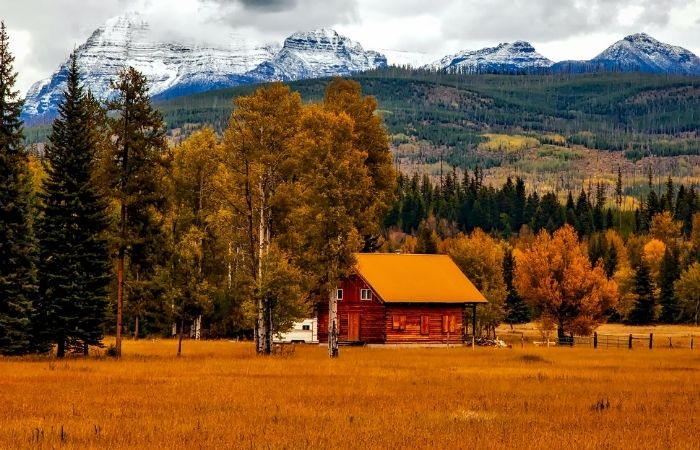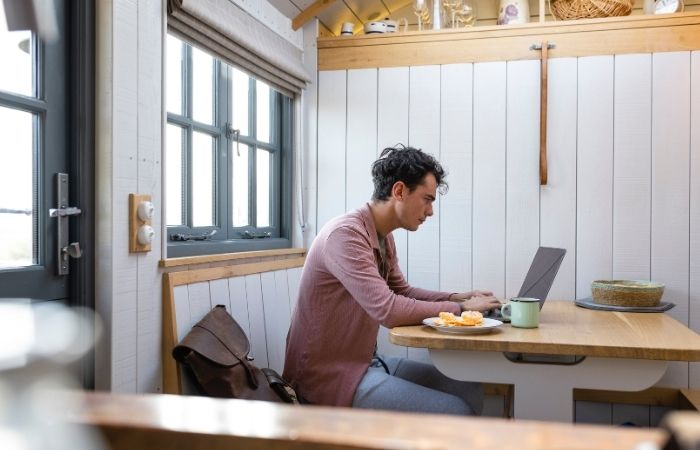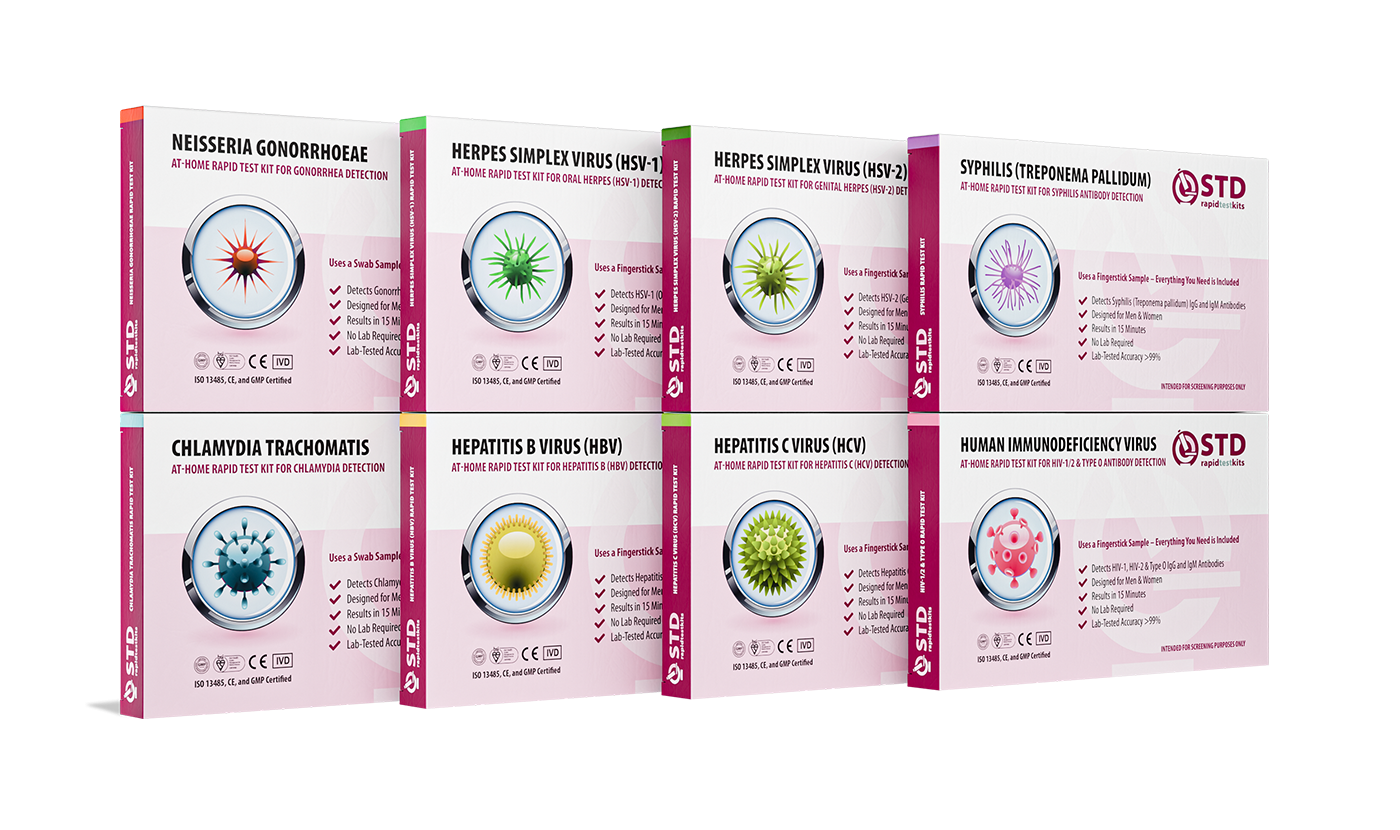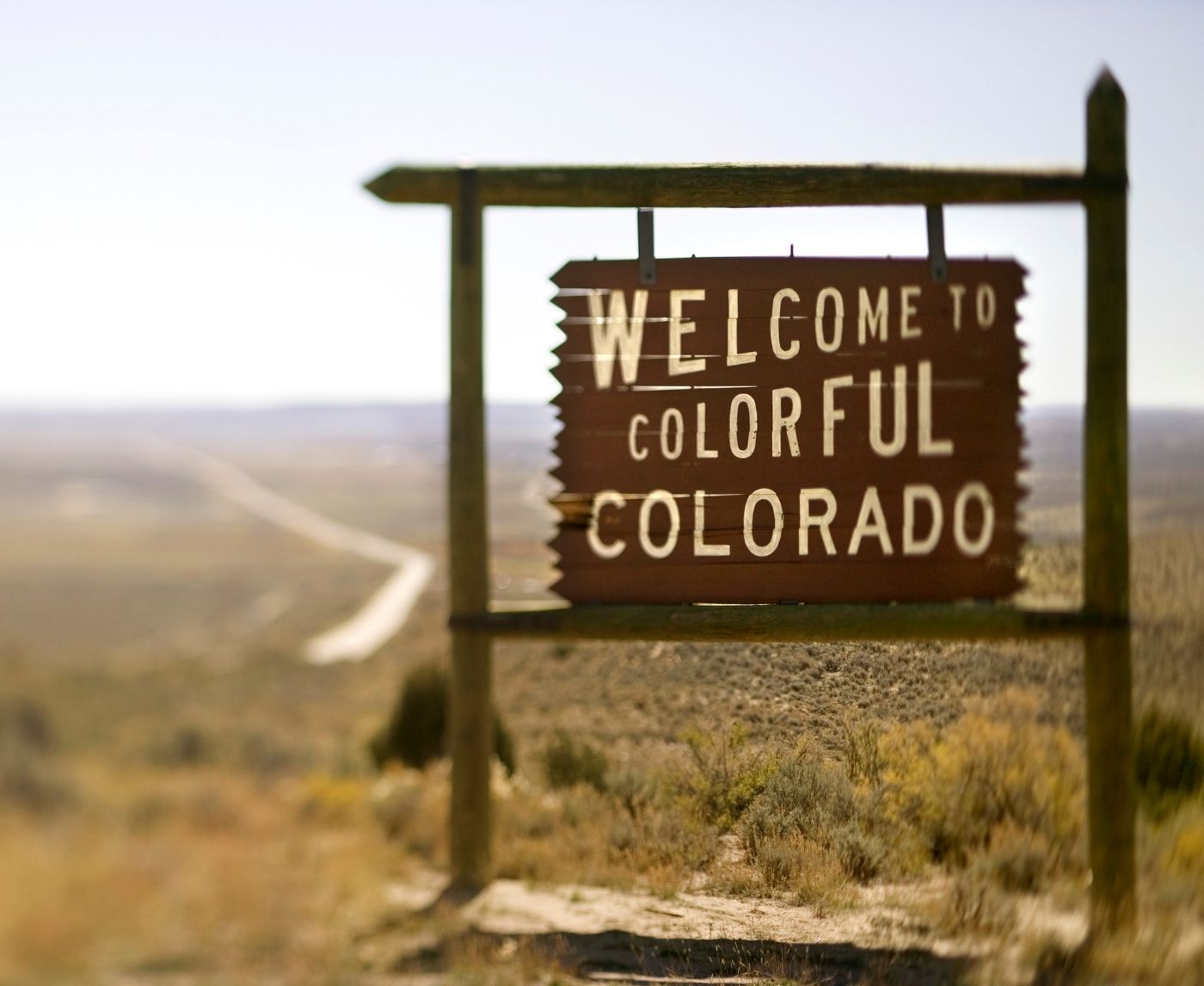Quick Answer: Living off-grid doesn’t mean skipping STD testing. At-home kits offer reliable, discreet, doctor-backed results, even if you’re miles from a clinic.
“We Had Sex in a Tent, and Now I’m Freaking Out”
Ellie, 26, lives in a solar-powered cabin near Nederland. She hadn’t seen another human in three days, then her boyfriend visited, and things got... steamy. A few days later, she felt a sharp sting when she peed.
“At first I thought it was a UTI from not drinking enough water on a hike. But it didn’t go away. And then I saw some weird discharge.”
Ellie didn’t want to go into Boulder. Not just because it was a drive, but because she didn’t want to sit in a waiting room next to someone she might run into at the farmers’ market. She wanted privacy. She wanted answers. She wanted it not to be an STD.
So she did what half of us do at 2AM: she Googled, “STD test Nederland Colorado no clinic.” What she found was a combo at-home STD test kit she could use right from home. It arrived in discreet packaging. She tested. Three days later: results. Positive for chlamydia. But treatable.
“I felt so much better just knowing. I could take care of it, tell my partner, and move on, without driving anywhere, without explaining myself to anyone.”

People are also reading: One Night Stand, One Mystery Sore, and One Big Lesson
Nature Might Be Pure, But That Hookup? Not Necessarily
We get it, you’re not out here licking subway poles. You’re soaking in hot springs, sharing hammocks, and maybe having some sex that felt spontaneous, sweet... or a little messy.
But living outdoors doesn’t make you immune to STDs. Herpes doesn’t care if you wear Chacos. Gonorrhea doesn’t skip backwoods hookups just because there was a campfire involved.
Let’s bust a few myths real quick:
“You can’t get an STD from a hot spring.”
True, kinda. The water itself isn’t the problem. But if you’re having sex in it, or using the same towel or razor as someone who’s infected? Different story.
“I’d know if I had something.”
Not necessarily. Chlamydia and gonorrhea often come with no symptoms at all. And herpes can look like razor burn.
“I don’t sleep around.”
Great. Neither did a lot of people who still got STDs. Monogamy doesn’t erase past exposures, or your partner’s previous situationships. STDs happen to good, smart, careful people. Living in the woods doesn’t exempt you, it just makes it harder to get tested the usual way.
The Problem With “Just Waiting It Out”
Let’s say you’ve got a weird bump. It doesn’t hurt, but it’s... there. Maybe it’s a pimple from sweating through those leggings. Maybe it’s an ingrown hair. Or maybe, it’s herpes.
The instinct is to wait. To hope it goes away. But the longer you wait, the worse it can get, not just for your body, but for your brain.
“I spiraled. I was refreshing Google, comparing photos, convincing myself it was monkeypox,” said Ty, 32, who lives outside of Creede. “I finally got an at-home kit because I couldn’t handle the not-knowing anymore.”
STD Rapid Test Kits let you skip the guessing. No spreadsheets of symptoms. No clinic calls. Just a clear yes or no, on your terms.
Check Your STD Status in Minutes
Test at Home with Remedium7-in-1 STD Test Kit

 For Men & Women
For Men & Women Results in Minutes
Results in Minutes No Lab Needed
No Lab Needed Private & Discreet
Private & DiscreetOrder Now $129.00 $343.00
For all 7 tests
How At-Home STD Testing Actually Works (No Clinic Required)
If you can assemble a camp stove or change a flat tire in a snowstorm, you can do this. Seriously, at-home STD testing isn’t some complicated biotech ritual. It’s designed for people who want privacy, clarity, and zero awkward face time.
Here’s what happens when you order from STD Rapid Test Kits:
- You pick your kit: Single-infection tests (like just for Herpes), or a combo panel that covers 3–10 of the most common STDs.
- You receive it (fast): Shipped in plain, unmarked packaging, no “STD ALERT” on the box, promise.
- You collect the sample: That could be a finger prick, a urine sample, or a swab, depending on the test. Clear instructions are included.
- You mail it back: Prepaid envelope. Drop it at a USPS box or post office (yep, even in tiny towns).
- You get results online: Usually within 1–3 days. No app download, no one else sees them unless you choose to share.
That’s it. No waiting rooms. No explaining to someone why you think you might have something. No insurance dance. Just you and the truth.
Who This Is For (Spoiler: Probably You)
Let’s be real, testing isn’t just for people who party hard or sleep around. At-home STD testing is for:
- Backcountry guides who don’t want to leave the trail for a week just to pee in a cup
- Vanlifers and nomads who don’t have a “primary care doc” and don’t want one
- Queer folks living in small towns with zero LGBTQ+ affirming clinics
- Monogamous couples who want peace of mind before ditching condoms
- Anyone who had a spontaneous moment and wants to stay responsible
You don’t have to be scared. You just have to be curious, and honest with yourself. That’s where testing starts.
“I didn’t even know what to Google at first,” said Miguel, 29, who camps full-time around Steamboat. “I typed in ‘itchy after hiking genitals’ and hoped something useful came up. What I found was a test kit, and honestly? It was a relief.”

People are also reading: Tinder, Testing, and Telling the Truth: Dating With an STD in 2025
“STD Test Near Me” Doesn’t Work in the Mountains
Try Googling “STD clinic near Crested Butte.” You’ll get listings for Aspen, maybe Grand Junction if you’re lucky, and... that’s about it.
For most rural Coloradans, the clinic isn’t “near”, it’s a damn road trip. And that assumes you have:
- A car that works
- Gas money
- Time off (which, if you're working seasonal gigs or multiple jobs, you probably don’t have)
- The courage to walk into a clinic where you might know the receptionist
At-home tests are the workaround. They’re for people who live 80 miles from the nearest OB/GYN, or who move too often to keep a health record that doesn’t disappear with every zip code change.
Got a PO box in Rico or a general delivery address in Paonia? You’re covered. You don’t need a fixed address or a full-time clinic. Just the internet and a dropbox.
Why Waiting Is the Worst Strategy
We know the logic: “I’ll wait and see. Maybe it’s nothing.” But here’s the problem, “nothing” has a way of turning into “something that gets worse the longer it goes untreated.”
Chlamydia can cause pelvic inflammatory disease (PID), which can lead to infertility. Herpes outbreaks can get more intense without antiviral support. Gonorrhea can spread to your joints (yes, really).
And beyond all of that? The mental toll of not knowing. The doomscrolling. The what-ifs. The isolation that comes with fearing you’re “gross” or “unclean.”
You’re not. You’re just human. And humans get STDs. What separates us isn’t who got exposed, it’s who got tested.
Money, Medicaid, and Mountain Town Barriers
Even if you’re willing to make the drive, the cost of clinic-based STD testing can be its own mountain to climb. Here’s what people in rural Colorado run up against:
- No insurance: Many seasonal workers, guides, or artists hustle without coverage. STD tests can cost $150+ at a clinic.
- Medicaid headaches: Colorado Medicaid technically covers STD testing, but not every rural clinic takes it, and some only test on certain days.
- Privacy slips: Even if Medicaid or insurance pays, the “Explanation of Benefits” (EOB) often lands in the mail. For people living with family, partners, or in small towns, that’s basically a broadcast.
At-home kits are a one-time, up-front cost. No paperwork. No surprise bills. No explaining why you’re at the health department. Just you, your test, and your answers.
Check Your STD Status in Minutes
Test at Home with Remedium8-in-1 STD Test Kit

 For Men & Women
For Men & Women Results in Minutes
Results in Minutes No Lab Needed
No Lab Needed Private & Discreet
Private & DiscreetOrder Now $149.00 $392.00
For all 8 tests
Off-Grid ≠ Off-Limits for Testing
Think of it this way: you already chop your own wood, catch your own water, or grow your own greens. At-home testing is just another way of taking control, another notch in the belt of self-reliance.
Living off-grid doesn’t mean you have to live without care. You can still:
- Get tested from a yurt in Creede
- Check your status while parked at a trailhead in Silverton
- Mail a kit from the post office in Pagosa Springs
“I felt proud, actually,” said Asha, 34, who lives near Salida. “Like, here I am, raising chickens, fixing my own truck, and taking charge of my sexual health. Testing at home felt like part of my independence, not an exception to it.”
Here’s the thing: shame is often a bigger barrier than geography. Many rural Coloradans delay testing not because they can’t, but because they don’t want to be seen doing it.
In tiny towns, privacy is currency. Walking into the county health office means risking bumping into your boss, your cousin, or the woman who runs the coffee shop. That’s enough to make anyone avoid it.
At-home testing rewrites the story. It says: you don’t have to announce it. You don’t have to justify it. You don’t even have to share it unless you want to. It’s private by design.
And let’s be clear: wanting to know your status is not shameful. It’s smart. It’s respectful. It’s care, for yourself and for the people you sleep with.
What If You Test Positive?
Okay, real talk: this is the fear that keeps people from testing in the first place. But here’s the reality, positive doesn’t mean doomed. It means informed.
When you use a legit at-home kit, you’ll get results that are:
- Accurate: Processed in certified labs using the same standards clinics use
- Confidential: Your results belong to you, not your insurance company, not your county records
- Actionable: Many kits offer follow-up telehealth consults or treatment options, especially for common infections like Chlamydia or Gonorrhea
And if you need more care? You can walk into urgent care or a family doctor with your results in hand. That’s one less step, one less round of explaining, and a lot less time in limbo.
Remember: The most common STDs, like Chlamydia, Gonorrhea, and even Herpes, are manageable, treatable, or controllable. But only if you test.
FAQs
1. Can I really test for STDs from a cabin in the Rockies?
Yes. If the mail can reach you, so can an at-home test kit. People have tested from yurts in Creede, vans parked outside Silverton, and PO boxes in Paonia. The lab doesn’t care where you live, they just want your sample.
2. I’m itchy after a week of hiking. Could it just be gear rash?
Totally possible. Sweat, friction, and bad laundry soap can all mess you up. But if the itch comes with burning when you pee, strange discharge, or bumps that don’t heal? That’s your cue to test instead of guess. Hiker’s rash clears. Infections don’t.
3. How secret is the shipping?
Very. The packaging is plain and boring, the way it should be. Think “Amazon basics” box, not “scarlet letter.” Unless you tell someone, it looks like vitamins, books, or random gear.
4. What if I don’t have health insurance?
Doesn’t matter. At-home kits don’t ask for insurance at all. You just pay up front, test, and you’re done. No surprise bills, no paperwork, no EOBs mailed to your parents or partner.
5. How long until I get results?
Usually 1–3 business days after the lab gets your sample. That’s often faster than trying to book a clinic appointment in rural counties. Drop it in the post office Monday, know your status by Thursday, it’s that quick.
6. What happens if my test comes back positive?
You make a plan. Some kits offer telehealth and treatment for infections like chlamydia or gonorrhea. If not, you can take your results to urgent care and skip the re-testing step. Most STDs are treatable. All are manageable. None mean you’re dirty.
7. So... can you catch an STD from a hot spring?
Not from just soaking. But if you’re having sex in the water, or swapping towels or razors, then yes, infections like herpes or pubic lice can spread. Hot springs aren’t dangerous by themselves, but hookups in them? Different story.
8. Are these tests legit?
Yes. Reputable at-home kits use the same certified labs that clinics do. The only difference is you’re in control of when, where, and how you test. No fluorescent lights. No waiting rooms. No side-eye.
9. I’ve only been with one partner. Do I still need to test?
If neither of you has tested since your last partners, yes. People can carry infections without knowing it. Testing isn’t about distrust, it’s about respect. Think of it as saying, “I care enough to double-check for both of us.”
10. Isn’t it weird to swab myself in a cabin bathroom?
Maybe at first, but honestly? It’s way less weird than trying to explain your sex life to a county nurse you know from church. Most people who try it once say it’s shockingly easy, and empowering as hell.
Before You Brush It Off, Here’s What To Do Next
You don’t have to trade privacy for answers. You don’t have to wait until your symptoms get worse. And you don’t have to feel ashamed for wanting to know your status. Whether you’re living out of a van near Durango or caretaking land in the San Luis Valley, you deserve real clarity about your sexual health.
Off-grid doesn’t mean off the hook. It means you handle things your way. Order an at-home STD kit today and take care of your body as fiercely as you take care of your land, your home, and your freedom.
Sources
1. STI and HIV Resource Center – Colorado Department of Public Health & Environment
2. Facts, Testing, and Locations for STI Testing – CDPHE
3. STI/HIV/Viral Hepatitis Testing Options – CDPHE
4. At-Home STI Testing via CDPHE–Partnered imaware Program
5. Denver “Up Close” Sexual Health Program – Denver Public Health & Environment
6. Sexual and Reproductive Health Resources – Colorado State University Health










